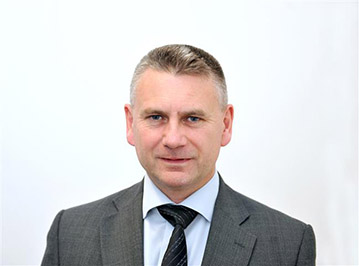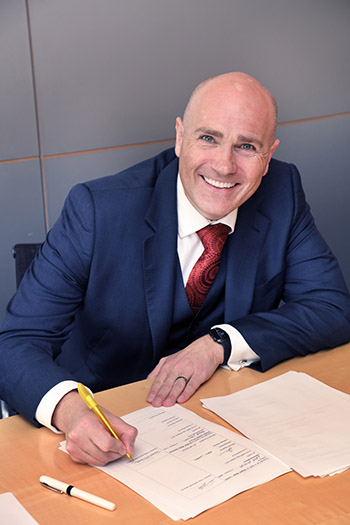
| Date: |
23 November 2017 |
| Time: | 10.00 hours to 15.30 hours |
| Venue: | Arup offices, 13 Fitzroy Street, London W1T 4BQ |
| Cost: |
Free |
| |
[Program] [ Venue details] |
 Image reproduced under Creative Commons license |
In April 2017, without much fuss or fanfare, it became possible for
about 1.2 million businesses in England to choose who supplies their
water, and switch between retail service providers to suit their needs.
This change reflects what happens in the energy sector where the same
infrastructure is used to deliver the same resources. However, the
customer/service interface, pricing etc. is different. The Scottish
Business Stream experience suggests that the benefit of retail
competition in the water sector could include better quality and
customised customer service, better value of water, competitive pricing
to suit business needs and improved water efficiency. This event was designed to take stock of what has happened so far. Keynote speakers (see below) presented the issues from their viewpoints and experience. But more importantly, participants helped to construct a visual/graphical account (digital story) of what has happened so far, and their anticipated effects in the water sector in the short, medium and long-term. This event was organised by the Service Innovation committee of the WATEF Network, chaired by Dr Sarah Ward. |
|
Event Chair:
| Martin Shouler Associate Director ARUP BSc Physics with Applied Physics MSc Environmental Design and Engineering FSoPHE, FCIPHE  |
Martin Shouler is the London Water Leader at the international engineering consultancy Arup. Martin works on water and related projects across Building Engineering and Infrastructure. Martin has extensive experience in the field of water system engineering having been involved in a wide range of major projects, in design, research and consultancy across the world. Particular expertise includes water supply, sanitation, sewerage, water conservation and efficiency, water quality, water treatment, wastewater engineering, and infrastructure services. In addition, he has a keen interest in sustainability particularly related to minimising water use and the energy associated with its use. He was a member of the Expert Group advising the UK government on technical standards for water systems for Building Engineering and Infrastructure. Martin takes a keen interest in accelerating innovation and has recently served on the Innovation Panel for the water regulator, Water Industry Commissioner for Scotland (WICS). He is jointly responsible for the water innovation showcase event, Wet Networks, held in London three times a year which brings together innovators, the investment community and technical experts. In addition, together with the UK’s WRc, Martin is responsible for the recent innovation portal for the water sector – Venturi (venturiportal.com). Martin is a member of British Standards Institution (BSi) committees responsible for a number of water and wastewater sector standards and has been involved in the development many British, European and ISO standards. He is currently working on Water Safety Planning for water in buildings. Martin is past chairman of the Society of Public Health Engineers (SoPHE). |
Keynote Speakers
| Trevor Nelson Business Stream  |
Title: Business Stream’s journey to the English market This will be a potted history of Business Stream and their preparations for the opening of both the Scottish market in 2008 and English market in 2017. Trevor will start by introducing himself and Business Stream. He will mention the fact that Business Stream are a 100% owned subsidiary of Scottish Water, created to compete in the Scottish market. He will then touch on some of the Scottish licence conditions and mention the Solutions arm which provides value added services such as water efficiency and water infrastructure services. He will make a few comparisons between the two markets and then concentrate on how Business Stream are prepared for the opening of the English market and why it was a little different from the existing English water companies as theyt are classed as a new entrant/unassociated retailer in the English market BIO: Trevor has been working in the water industry for 11 years, joining Business Stream as its Regulation and Compliance Manager in 2006 to help the business and the market prepare for the opening of the non-household competitive market in Scotland, which opened in April 2008. In advance of the opening of the English market, Trevor, represented the interests of both the customer and “unassociated retailers†on the Open Water programme for three years. He was elected on to the Interim Codes Panel in May 2015 and then the Panel in December 2016 where he is still an active member. Trevor also sits on various committees and working groups, including the Market Performance Committee.
|
|
| Lois Vallely Water Retail/Utility Week |
Title: The Water Retail Marketing - Ironing Out the Issues Water retail competition is well and truly underway. Since it opened, the market has been rife with issues such as concerns about data quality, customer awareness, inconsistency in wholesaler charging, and a general lack of standardisation in wholesaler strategies. The birth of this new market has created a fresh set of characters – the retailers – which have been forced to quickly learn how to gain, and obtain, customers and turn a profit in a market with incredibly tight margins. Retailers have taken on these challenges in a variety of ways, and with varying degrees of success. Competition has also encouraged the entry of existing energy brokers into the water market, and coaxed out of the woodwork small specialist water brokers. These two new sets of stakeholders join the water “wholesalers†(formerly known simply as the “water companiesâ€) in a market which has so far seen a relatively modest amount of activity. This presentation will provide an overview of what has gone well, what hasn’t, and the primary issues which these three sets of characters must work together to overcome as we rapidly approach the eight-month mark. BIO: Lois is features editor of Water.Retail – which offers unique analysis, exclusive data and commentary from a team of experts, and from the industry itself. She is also features editor of Utility Week – the leading business-to-business brand for the water, gas and electricity industries. Lois joined Utility Week in January 2015 as a news reporter covering energy retail and the energy networks. She became news editor of the title just a year after joining the brand, and began editing Water.Retail when it launched in March 2017. She has a degree in English and Film Studies from Queen’s University Belfast, and three years’ experience in B2B journalism. |
|
| Aaron Burton Waterwise  |
Title: Delivering Water Efficiency in Retail Competition Through retail competition for water, non-household customers are free to change from their existing monopoly water company to another water supplier – now the case in Scotland and England. This is really about the “customer-facing†services including billing customers, handling payments, reading meters, and taking calls from customers about network related issues. Water efficiency was seen as a key benefit from competition in Scotland and formed part of the business case for implementation in England. To date there has been wide variation in water efficiency services being delivered by retailers. The Waterwise Water Efficiency Strategy for the UK, developed with the water sector, set out a range of challenges linked to retail competition. This presentation discusses these challenges, progress since April 2017, the need for a forum on water efficiency for retailers and a league table to compare services and drive innovation in water efficiency. BIO: Aaron is an internationally recognised expert in water efficiency and sustainable water management. He has worked in the UK and Australia across NGO, consulting, industry, academic, regulatory and government roles. This has included projects joining up water and energy efficiency, climate change adaptation and resilience, embedded water, water sensitive urban design/ integrated water management and developing pilot projects to provide evidence for policy and strategy changes. He co-authored the 2017 Water Efficiency Strategy for the UK and the 2009 Water Resources Strategy for Wales. He is a Trustee of CIWEM, Secretary of the International Water Association Efficient Urban Water Management Specialist Group, a member of the 2018 IWA World Water Congress Programme Committee and the CIWEM Water Resources Panel. |



